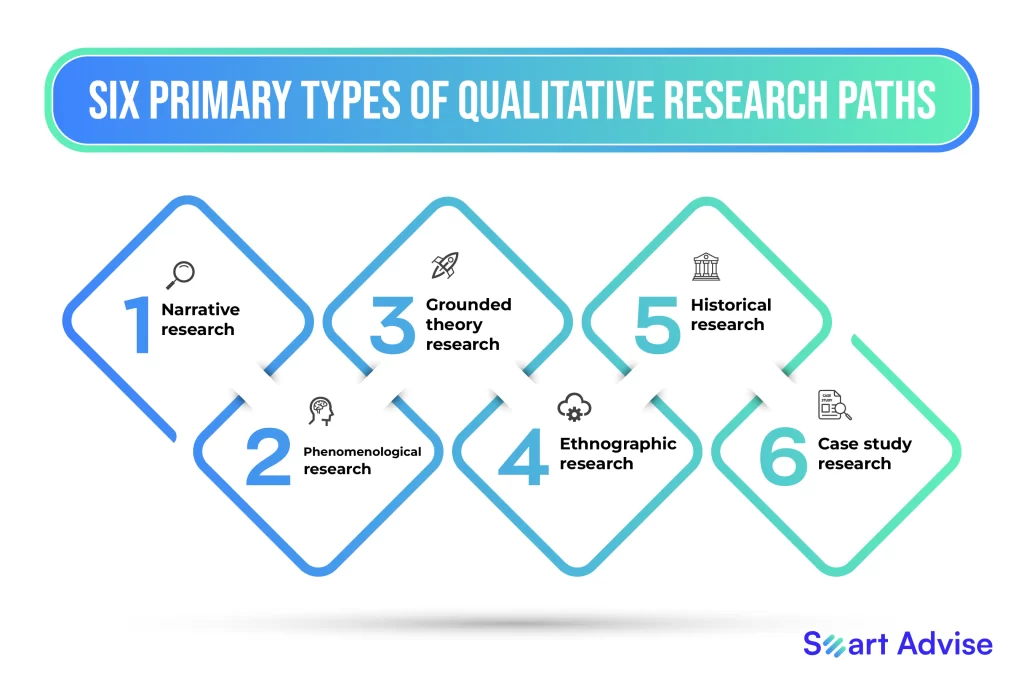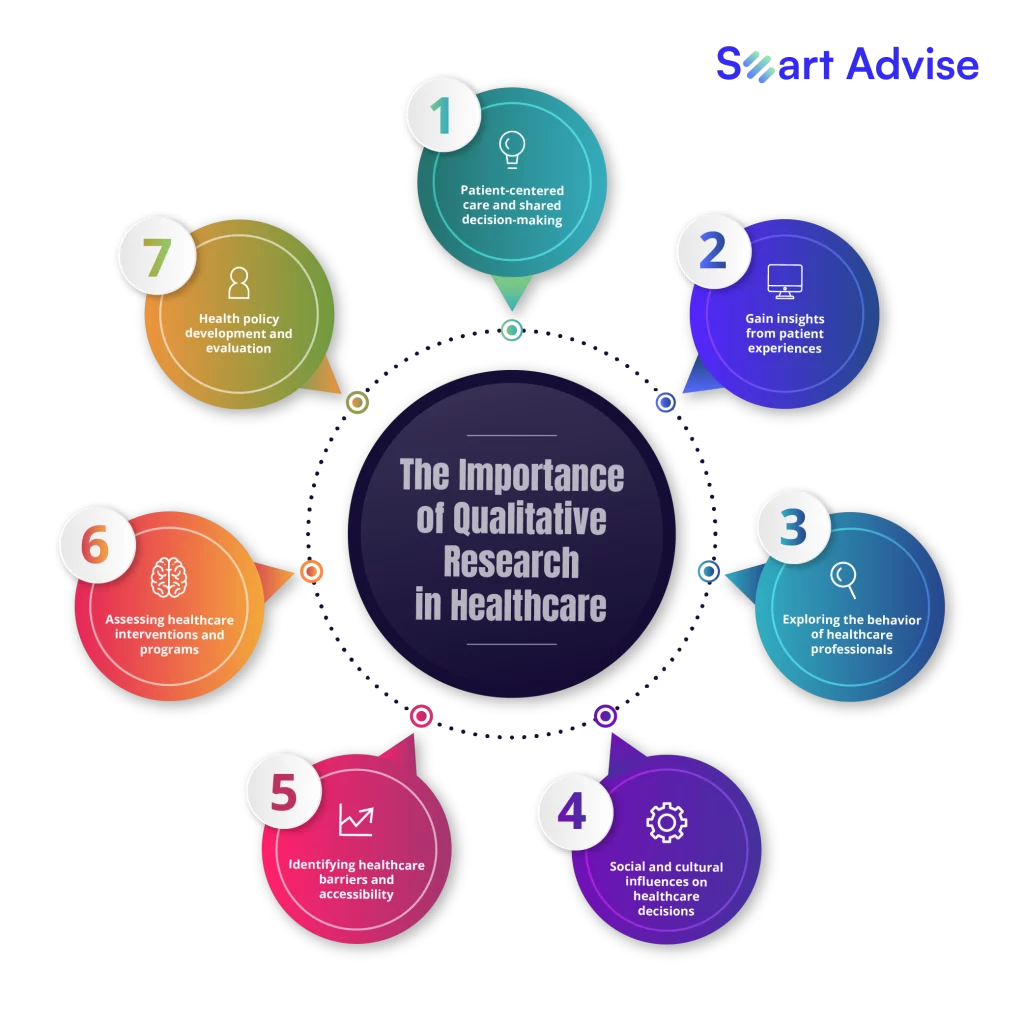
Why Qualitative Research Is Essential for the Healthcare Sector
Accurate and reliable data is paramount in the dynamic and ever-evolving healthcare field. While quantitative research plays a crucial role in providing statistical evidence and measurable outcomes, qualitative research offers unique insights and perspectives that are equally important.
By exploring the lived experiences, opinions, and emotions of patients, healthcare providers, and other stakeholders, qualitative research contributes to a comprehensive understanding of healthcare issues and significantly enhances the quality of care.
Healthcare research involves a systematic investigation to produce reliable evidence regarding significant matters in medicine and healthcare. Qualitative research is useful in healthcare research. There are numerous opportunities to explore within this arena.
Implementing this methodology in the healthcare sector can enhance its importance and practicality in the field.
There are six primary types of qualitative research designs:

Qualitative research is commonly utilized in healthcare to comprehend health behavior patterns, explain personal experiences, establish behavioral theories, investigate healthcare requirements, and create interventions.
Due to its numerous applications, there has been a significant rise in the number of health research studies that employ qualitative methodology.
This blog will explore why qualitative research is essential for the healthcare sector.
What is Qualitative Research?
Qualitative research involves collecting, interpreting, and analyzing non-numeric data to uncover the deeper meanings behind human experiences and behaviors.
It provides an ability to understand healthcare issues in a detailed and comprehensive manner. This approach is considered the most humanistic and personalized method of uncovering the thoughts and actions of individuals in the healthcare field.
Why Qualitative Research?
Qualitative research is gaining recognition in healthcare practice. Discover the diverse approaches utilized in qualitative research and how they can offer valuable insights to enhance clinical practices.
With qualitative research, health conditions and behaviors can be understood. Similarly, qualitative research can help us compile information on diverse illness experiences, details of various health interventions, and recommended healthcare theories behind the diagnosis.
According to the National Library of Medicine, the strength of this approach lies in the richness of the data and the depth of exploration it provides. Therefore, qualitative methods are considered the most humanistic and person-centered way of discovering and uncovering the thoughts and actions of human beings.

Top 5 outcomes that qualitative research can achieve in the healthcare sector.
1) Understanding Patients’ Experiences:
Qualitative research methods like interviews, focus groups, and ethnographic studies allow researchers to gain deep insights into patients’ experiences. By listening to their stories, researchers can understand the impact of illnesses, treatment outcomes, and the overall healthcare journey from the patient’s perspective. This understanding goes beyond numerical data and statistical analysis, enabling healthcare professionals to develop patient-centered care plans, improve communication, and address individuals’ specific needs and concerns.
2) Uncovering Complex Social and Cultural Factors:
A myriad of social, cultural, and contextual factors influences healthcare. Qualitative research helps uncover these complexities by exploring the social determinants of health, cultural beliefs, and societal norms that influence healthcare decisions and outcomes. By identifying these factors, healthcare providers and policymakers can develop interventions and strategies that are sensitive to diverse populations, leading to more equitable and inclusive healthcare services.
3) Identifying Barriers to Healthcare Access:
Qualitative research is instrumental in identifying barriers to healthcare access faced by marginalized and vulnerable populations. By engaging in conversations with individuals from different socioeconomic backgrounds, ethnicities, or geographical locations, researchers can identify unique challenges that may not be evident through quantitative data alone. These barriers may include financial constraints, lack of transportation, language barriers, or mistrust of the healthcare system. By understanding these barriers, healthcare organizations can develop targeted interventions to improve accessibility and reduce health disparities.
4) Enhancing Communication and Patient-Provider Relationships:
Effective communication between healthcare providers and patients is vital for achieving optimal health outcomes. Qualitative research can shed light on communication challenges and opportunities for improvement. By analyzing patient-provider interactions, researchers can identify areas where miscommunication or misunderstandings occur, leading to suboptimal care. This understanding can inform training programs for healthcare professionals, facilitating better patient engagement, shared decision-making, and building trust.
5) Guiding Policy and Practice:
Qualitative research findings have the power to shape healthcare policies and practices. Policymakers rely on robust evidence to develop guidelines and regulations that improve healthcare delivery and patient outcomes. Qualitative research provides in-depth insights into the complexities of healthcare systems, enabling policymakers to make informed decisions that align with patient needs and preferences. Additionally, qualitative research can inform the development of innovative interventions and care models, ultimately enhancing the quality and effectiveness of healthcare services.
The limitations of qualitative research in capturing the complex nature of healthcare while qualitative research provides necessary information for various research goals, this approach does involve some difficulties. It burdens the researchers and their ability to interview, observe, document, and interpret the data. Moreover, there are some additional challenges associated with qualitative studies in the healthcare industry:
-
- Patient involvement: Throughout the study, it is essential to prioritize the needs of patients, including their privacy and level of involvement. Researchers should be mindful not to involve them without considering their suggestions or concerns.
-
- Relevant study groups: Patients involved in the study should have similar experiences as those of other patients in similar contexts. This helps translate the findings from the study group to a larger patient group.
-
- Relevant outcomes: In order to be impactful, a qualitative study should produce knowledge that leads to practical outcomes. The relevance of the study’s findings to the patient population is crucial for its effectiveness.
-
- Ethical considerations: There is necessary to safeguard all the rights and opinions of participants who willingly became a part of the qualitative research. However, after a certain period of time, there are concerns regarding the validity and reliability of the data.
Editor’s Note
In a rapidly evolving healthcare landscape, qualitative research complements quantitative data and provides a comprehensive understanding of healthcare issues. By exploring patients’ experiences, uncovering social and cultural factors, identifying barriers to access, enhancing communication, and guiding policy and practice, qualitative research contributes to better patient-centered care, improved health outcomes, and a more equitable healthcare system.
Embracing qualitative research methods in the healthcare sector is essential for ensuring a holistic and patient-focused approach to healthcare delivery. Smart Advise provides research assistance tailored to your specific needs. Get your hands on your research papers today!